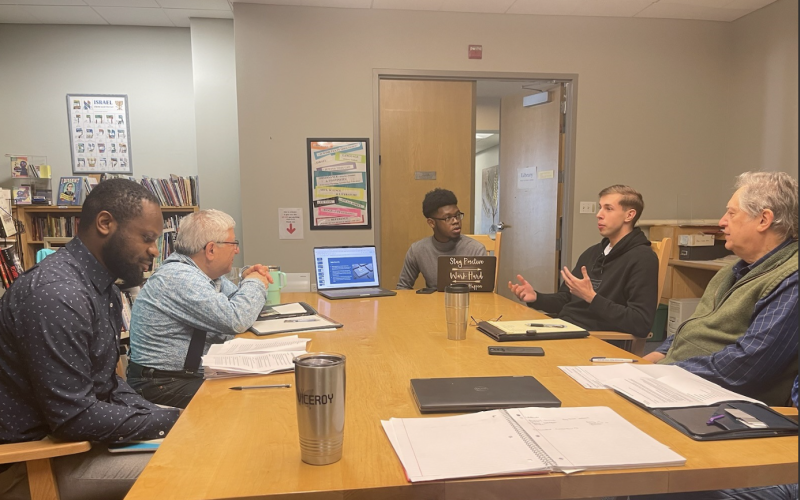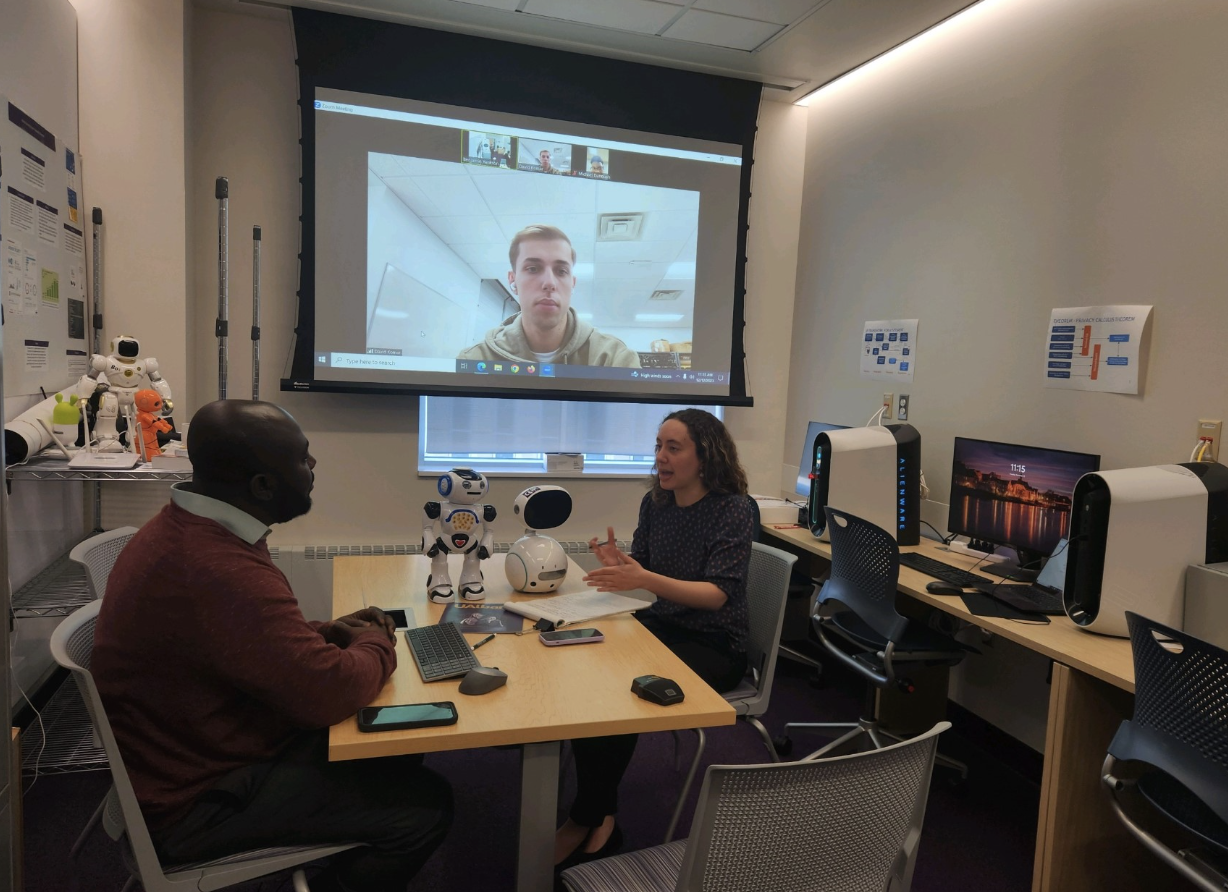CEHC Students Offer Cyber Expertise to the B’nai Sholom Reform Congregation

ALBANY, N.Y. (Jan. 5, 2024)—Three graduate students at the College of Emergency Preparedness, Homeland Security and Cybersecurity (CEHC) recently put their cyber skills to the test while conducting a vulnerability analysis and risk assessment for a local Jewish congregation.
B’nai Sholom Reform Congregation, a Reform synagogue in Albany, reached out to CEHC Assistant Professor Benjamin Yankson in early 2023, looking to use the College's expertise to assess the organization’s cyber risks and identify potential vulnerabilities in its IT infrastructure.
Yankson, who directs CEHC’s Hack-IoT (Internet of Things) Laboratory, assembled three cybersecurity master’s students to spend their fall semester earning class credit by working with B’nai Sholom to complete the assessment.
The students, all part of CEHC’s risk, policy & compliance track in the University’s Digital Forensics and Cybersecurity master’s program, published their report in December and shared findings with leadership of the congregation through a presentation on campus.
"I am passionate about providing our students with an opportunity to engage in experiential learning, which helps them develop valuable skills and experiences necessary in cybersecurity,” said Yankson. “The students did a terrific job working with B’nai Sholom Reform Congregation. Throughout the project, they conducted and presented themselves as real cybersecurity professionals and achieved excellent results.”
“We were glad to have this opportunity to work with CEHC, and plan to use the completed vulnerability assessment in our application for a 2024 Securing Communities Against Hate Crimes (SCAHC) grant to improve cybersecurity,” said B’nai Sholom team lead, Howard Stoller. “It was great working with Professor Yankson and the three students he selected, as they did a professional, thorough job. We are lucky to have this resource available locally, and hope that other non-profits will take the opportunity to improve their cybersecurity.”

To complete the project, the students used the U.S. Cybersecurity and Infrastructure Security Agency’s cybersecurity toolkit as a framework. The toolkit is used to provide general guidance for cybersecurity assessments to make sure that security systems for organizations are secure.
The B’nai Sholom leadership team will address the no- or low-cost issues that were raised in the report immediately and will implement strategies requiring greater expenditures if they are successful with their grant application.
“This experience offered us an opportunity to turn our knowledge in the classroom to practical application, working as a consultant,” said David Komar, a graduate student at CEHC. “I now feel confident in my abilities to work with real-world clients after graduation.”
“The process challenged me to apply what I’ve learned in the classroom to help a real client improve its cyber vulnerabilities,” added Ferdinand Tamukum Fonjiyang, a graduate student at CEHC. “The issues we identified during the assessment underscored the importance of cybersecurity auditing in every sector of society.”
“Helping a real organization secure its cyber infrastructure was a new experience for me,” said Michael Danquah, a graduate student at CEHC. “It’s an incredibly valuable opportunity for students. I recommend the program for anyone who is interested in a future cyber-related career.”
In 2020, prior to the COVID-19 pandemic, Yankson ran a similar successful project for a gaming company in Troy, N.Y., which received great feedback from its management team.
He plans to continue the program in future semesters, partnering with local organizations to improve their cyber preparedness, while offering students experiential learning experiences.
“The goal of this community engagement project is to help local companies and organizations remain secure, while at the same time offering our students valuable field experience,” Yankson said. “We’re open to helping more community partners secure their information systems and thankful to CEHC’s leadership for supporting the project.”


